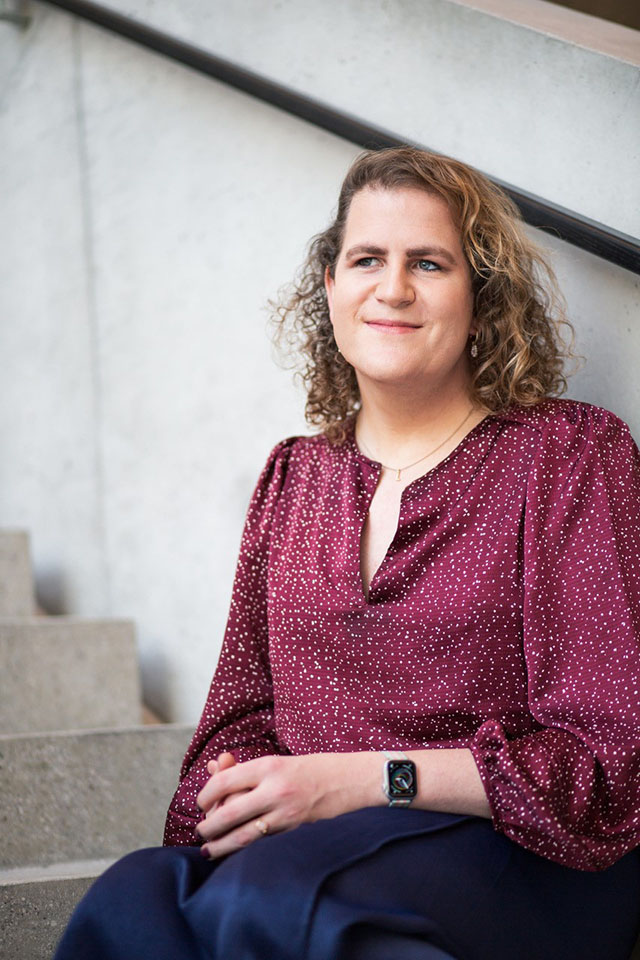Students coaching high schoolers
There are plenty of high school students in Maastricht who could use a helping hand with homework and with learning to learn. Fortunately, there are plenty of UM students who are happy to help with this. In the ‘Match for Brighter Futures' project, UM students are helping high school students with their homework, as well as encouraging them to dream big and work hard to realise their dreams.
For Femke Perdijk, International Business student and member of the student association Tragos, she took for granted that she would get homework assistance in high school. But that is not the same for everyone. With the project ‘Match for a better future’, Match focuses on improving learning performance, as well as on increasing self-confidence, self-reliance, sense of purpose, inspiration and motivation. Femke heard about the project through her student association and signed up. “In addition to my studies, I wanted to do something that I can learn from and that allows me to help other people.”

During the biweekly meetings, Femke noticed that her high school student made little effort to do his homework. “I couldn’t really blame him for that, because his home situation was difficult. I tried to motivate him by helping him figure out what his interests were and what he would like to do after school. Once he knew that, things went a little better. I hope he succeeds in continuing his education.”
In addition to Femke, about 20 of her fellow students have signed up for the ‘Match for Brighter Futures' project. Joris van Wel, Tax Law student and board member of Circumflex, also took two high school students under his wing. “I thought it was a challenging and interesting experience. The material that the students were dealing with was different from what I was used to, but I could explain mathematics to them. In addition, they were two happy participants that I got along with. We had nice conversations, about the possibilities of the bitcoin, among other things—but also about the future. I think it’s important to stimulate their interests.”
Workshop
Before they started helping with homework and coaching, the UM students were given a workshop. They covered themes such as: ‘How do you teach a student to learn?’, ‘What are the most effective learning styles?’, ‘How do you support the development of interests and talent?’, and ‘How do you stimulate and inspire?’. It was particularly the latter that Tom van Mierlo, student at the University College and member of Saurus, tried to put into practice. “I’ve talked a lot with my students, also about personal things. I wanted to show them that school can be fun. By also dealing with things outside the regular subject matter, I hope to make them enthusiastic.”
All three students call the project an eye-opener. They realise that a stimulating home environment and the possibility of continuing their education is not self-evident to everyone. “In fact, every university student should do this for half a year”, says Femke. “I learned a lot from it myself, especially with regard to pedagogical skills”, adds Tom. Joris agrees, but he has another point: “Students, especially as members of an association, are often seen in a bad light, even though they frequently volunteer for social projects. For example, students from all major associations—Circumflex, Tragos, Koko and Saurus—have participated in this project. That should also be brought to people’s attention.”
Also read
-

Empowering Smallholder Farmers in the Data Economy: Unlocking Opportunities and Overcoming Obstacles
Frederik Claasen, the head of policy at our partner organisation Solidaridad Network on the opportunities and obstacles facing smallholder farmers in their data ecosystems.
-

After several rocky years, Maastricht University alum Lea Vink has found her feet in Vienna. Professionally, she is taking new steps at the crossroads of aviation and organisational psychology. And on a personal level, luck has smiled on her since her transition from man to woman.
-

Do students' perspectives on education matter? Should educators listen to the "student voice", and if so, how? EDLAB Innovation Coordinator and former UM student Lena Gromotka reflects on the four types of student voices: the Complainer, the Critic, the Idealist, and the Suggester.